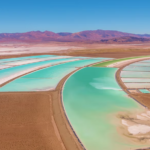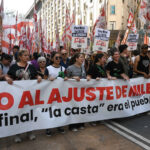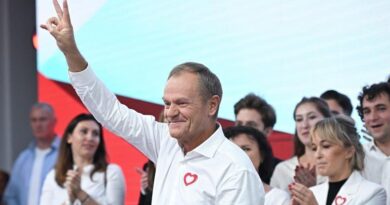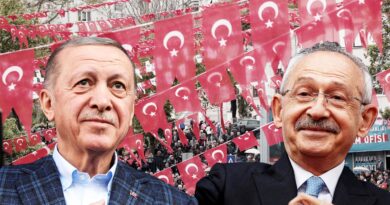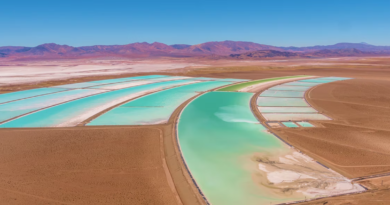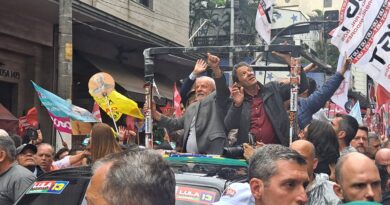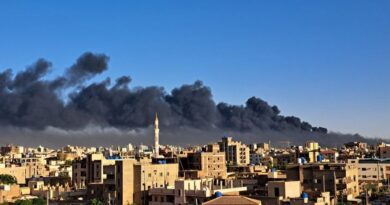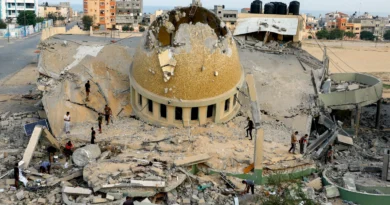Genoud: “Massa is the price that must be paid to avoid Milei's rise”
CECILIA VALDEZ
Almost 10 years ago, journalist and political analyst Diego Genoud decided to dedicate hours of his life to investigating and trying to elucidate Sergio Massa, the ruling party's candidate for president in the elections this Sunday, October 22. The result of that work was titled: “Massa, the unauthorized biography” (2015), but as he himself says: “Massa seduces”, and Genoud allowed himself to be tempted again by the figure of the now presidential candidate, and this year he published a second biography: “The careerist of power. The non-advertising story of Sergio Massa” (2023).
When on June 23, the ruling party/Peronism/Kirchnerism announced the pre-candidacy for president of the current Minister of Economy, Sergio Massa, everything was perplexity. It was assumed that Massa's candidacy was contingent on the good results of his economic management - clearly unsuccessful - but that did not seem to matter. Until that moment, the internal relations of Kirchnerism (previously Frente de Todos and today Unión por la Patria) were exposed, and the fact that Massa was the consensus candidate only confirmed a scenario full of factions and internal ruptures.
But Massa is famous for weathering storms, rearming himself and moving forward. Even so, there are many who these days are surprised that, if the different estimates (from pollsters, analysts, and a long list of etc.) are met, Massa will most likely be able to enter the runoff (2nd round) alongside the far-right candidate of Freedom Advances, Javier Milei.
Massa is 52 years old and has been in politics for at least three decades. He was director of ANSES (National Social Security Administration) for 5 years, with important achievements for a historically very punished sector: retirees.
It has a direct line with businessmen, politicians, union members, and with Washington. Originally he was a member of a conservative party (UCeDé), then he joined Peronism and in 2013 created the Frente Renovador. That same year he assumed a seat as a deputy. He has a long political career that supports him and a strong connection with the most diverse circles of power. He came and went from Kirchnerism, and now he is preparing to fulfill his greatest dream: to wear the presidential sash.
In June 2022, when Martin Guzmán resigned from the Ministry of Economy in the middle of a serious economic crisis, and no one wanted to take that hot potato, Massa took charge. But the now candidate carries on his shoulders a management as Minister of Economy in which there was a devaluation of 22% (post PASO), inflation reaching its historical maximum since 1991 and a poverty rate of 40%.
Who is Sergio Massa? How would you define it after having researched it for so many years?
Massa is a politician with a lot of experience who started in politics at a very young age and has been in politics for more than three decades. During that time he went through different identities, and changed alliances and positions, but the constant in him is that he has an enormous capacity for power, a great vocation to fight for power, inexhaustible energy, and that he manages to get his allies to do so. covet as a partner. But he has also hinted that improvisation and anxiety about burning through stages are two of the characteristics that work against him. That is to say, today, that anxiety and that improvisation are explained by the difficulty that he is having in reaching the end of his term as minister because he always prioritizes the short term. I say that Massa is a short-term fundamentalist, because he sacrifices the medium term and planning, to reach his objectives. In this case, the objective was to be a candidate for president, and he did everything he could to be a candidate, even neglecting the construction of an economic plan and the work of creating a team that would accompany him in his management, and that perhaps would help him. would have avoided reaching a crucial election in the conditions in which it is arriving.
You say that Massa activates the endorphins of power, what do you mean by that?
I say this because it is seductive, and it greatly excites power. Furthermore, he has the ability to sell scenarios that can be conducive to actors of permanent power who think that he is capable of guaranteeing governability, and that Cristina (Fernández de Kirchner) is subordinated to his leadership. All of this excites the economic power with the idea of an Argentina in which it is possible to reconcile what Kirchnerism was, Cristina and the sectors that support her, with the economic power and ambitions of the establishment. Massa offers himself as a bridge and that is why he is able to enthuse those actors of permanent power: businessmen with interests in strategic sectors who are his partners, or his sponsors, and his friends of many years. Massa has more capacity to seduce power than to convince Argentine society. We will now have to see if he manages to improve his electoral performance, but if one looks at the results of the primaries (PASO), it is clear that he has more support in power than in Argentine society.
How do you see his performance in the campaign in his dual role as Minister of Economy and candidate of the ruling party?
Well, a little bit what I said before, his main objective was to become a candidate for president, and to be the candidate of unity, to have the support of Cristina (Fernández de Kirchner), and he did everything to achieve that goal. That led him to neglect his own financial management, which could have been his best springboard. It is true that -as he says-, he had the drought against him, but when one consults opposition economists, and some from the government as well, what they admit with recorder off, is that he arrived without an economic plan, and without an economic team. , although he had sold that he had them. He finished putting them together urgently, and all of that obviously brought him significant costs. Both that and promising, in addition, that he was going to have inflation around 3% when he had it at 8% in April, and many other promises that he made that he later could not keep. The last, and the most important, because he is going to have electoral consequences on October 22, is that he promised that before devaluing he would leave the ministry, and finally he devalued and stayed.
How did you see it in the presidential candidate debate?
It seems to me that he performs well in relation to the other five candidates who reached this stage. He is someone who is used to giving answers, thinking, planning, and seeing how to surprise with campaign proposals. He has been a candidate for 10 years, he was a candidate for president for the first time in 2015, and in 2019 he was not, but I evaluated until the last minute whether he had room to be one. That is to say, in that sense he has a lot of advantage over the rest of the candidates who are now presenting themselves for the first time. Even so, everything he proposes has an Achilles heel, which is his own management. Beyond what can be said, such as that he took over a hot potato a year and two months ago when Guzmán resigned, the truth is that he was an important part of the entire management of the Frente de Todos and, without a doubt , is now the owner of the government, the government controller, the de facto president, or the prime minister, whatever you want to call him, for more than a year. So, what you say in the debate may be able to convince some undecided people, but you not only have to be undecided, you also have to consider that the reality you are experiencing, and the results of Massa's management, are not that important, and You have to give it a second chance. Because Massa has been in charge of the most important decisions of the government for some time now.
Do you think that Unión por la Patria's strategy of choosing the Minister of Economy as a candidate in the midst of this crisis was wrong?
Massa achieved his goal of being a candidate and that was because he did not have too many strong rivals within Unión por la Patria. He, as he says, was the only one who took charge when (former Economy Minister) Martín Guzmán left the government, and there were no candidates with serious aspirations. Wado de Pedro (Minister of the Interior and part of the hard core of Kirchnerism), was an emergency candidate who appeared at the last minute when Cristina asked for marshals. The only important candidate who could overshadow him was (the Argentine ambassador to Brazil) Daniel Scioli, but there Scioli suffered the surrender of the president, who at the last minute stopped supporting him, and ended up making an agreement with Massa. He also, obviously, suffered rejection, indifference, or lack of support, from the vice president (Cristina Fernández de Kirchner). Massa was able to resolve, or avoid, this conflict between him, Pedro and Scioli, thanks to the support of governors Gerardo Zamora of Santiago del Estero, Raúl Jalil of Catamarca and Ricardo Quintela of La Rioja. Zamora and Jalil came to Buenos Aires, they wandered around the offices and that was enough for Massa. That, and his ability to lobby, and to put pressure inside, were enough for him to avoid the internal one. I also think it was due to the fact that he did not have many serious rivals and that he was willing to play until the end, as was demonstrated.
Do you think that the useful vote for Massa can be decisive in this first round? That is, of all those people who, without being convinced of her proposal, are going to vote for it...
More than the useful vote, I believe that what will influence the election on October 22 is the rejection of the other. As never before, in this case, the fear and horror of the rest of the proposals, especially Milei's, which is the one that appears as the favorite. Faced with that, for a part of society, and for the historical voters of Cristina (Fernández de Kirchner), above all, but also for some sectors of progressivism, Massa is the price that must be paid to avoid the rise of Milei. But I don't know if that useful vote, or that vote from a part of society, can give him victory, because Massa competes against himself. That is to say, to some extent, the candidate competes against the minister, and for the sectors that do not see this election from the point of view of the symbolic, or from the point of view of political alignments, or that do not let themselves be carried away by the government's message of the catastrophe that can come with Milei, but rather they look at its present, it seems to me that it will be difficult for those sectors, which are outside the old polarization, to lean towards it in this context of inflation uncontrolled and of so much anguish and instability.


